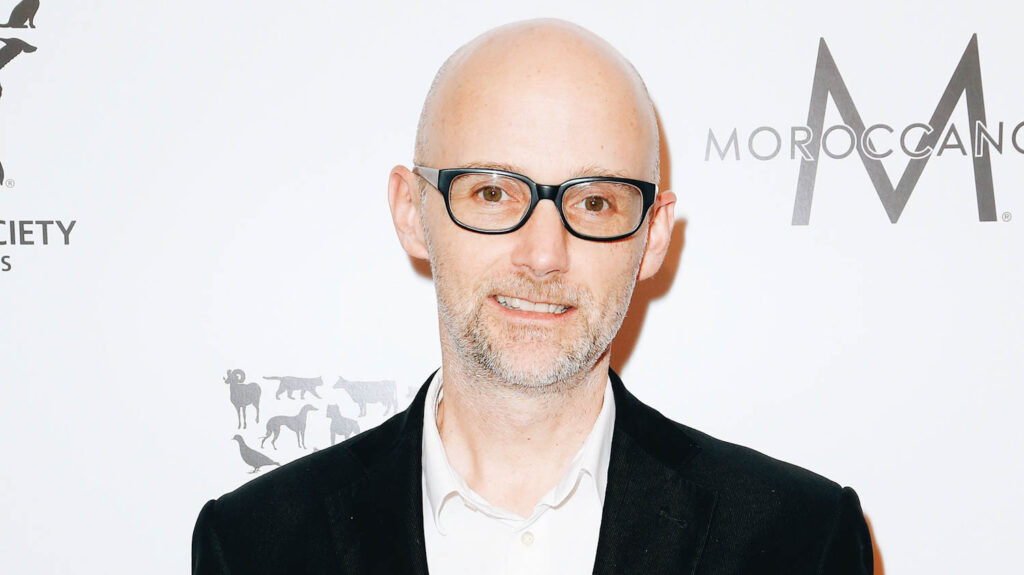In response to the backlash over a Wall Street Journal op-ed written by musician and longtime vegan and environmentalist Moby earlier this week, the animal rights activist took to Instagram to respond to the controversial post.
In the op-ed, Moby encouraged stronger restrictions on what the Supplemental Nutrition Assistance Program (food stamps) would allow beneficiaries to purchase. The $75 billion government-funded program provides assistance to low-income families by way of an allowance only redeemable for food purchases.
“As I can attest from my childhood experience, SNAP really does help feed poor people, and no one wants to return to the days when America turned a blind eye to hunger,” Moby wrote in the op-ed. “But it also puts a lot of unhealthful food on America’s plate. Its costs are huge, as are the added costs of treating diabetes, hypertension and other illnesses that poor eating habits cause.”
The musician is not the first to suggest restrictions on what’s allowed for purchase via the SNAP program. Congress heard similar arguments last year suggesting restrictions on soda and junk foods through the program, which is housed under the nation’s massive farm bill. The revision process to the divisive bill, is a “congressional arm-wrestling match,” Moby said, that’s “pitting those who want to preserve funding for SNAP against those who want to gut it.”
Moby said SNAP should continue to be offered, but that like many government-funded diet and health-based programs, focus on “cheap, healthy foods like beans, vegetables, fruit, and whole grains.” Currently, there’s a heated debate about Republican language in the bill that would also require SNAP recipients to work or be in school.
“Being poor can involve shame, as well as a commensurate longing for pride,” Moby wrote. “Nothing delivers a greater sense of pride than helping your children succeed and doing your best to see that they grow up healthy.”
But it didn’t go over well. People took to Twitter calling him a classist, suggesting he’s overstepping boundaries and failing to address other issues related to poverty and diet such as food deserts and lack of time or abilities to prepare healthy foods.
“A man worth millions of dollars is saying individuals who rely on government assistance should not be able to use food stamps to purchase things that are deemed to be unhealthy,” noted Eater. “This isn’t sitting well with Twitter users.”
The millionaire entrepreneur is known though for his selflessness: his LA restaurant donates all profits to animal rights organizations, he lends rights to his music to charities for free, and he frequently performs for no pay (full disclosure: including at my daughter’s preschool).
“[I]’ve looked at some of the more hateful comments, and [I] have to assume that many people are commenting on comments about comments.. to be fair, it doesn’t seem like too many people commenting have actually read the op-ed,” he wrote on Instagram.
“[I] don’t take it too personally, as pockets of the internet have simply devolved into weirdly atavistic, irrational hate,” he said, noting that the premise of the op-ed “was pretty simple: the current food stamp(or ‘snap’)program largely benefits the corporations who make junk food, while compromising the health of people using food stamps.”
The musician makes no apologies, and points the finger instead at the Big Food lobby: “ultimately [I’m] offended by corporations making billions from the federal government while people on food stamps suffer.”
Numerous studies have found that not only are lower-income neighborhoods less likely to have supermarkets within reasonable distances, but those supermarkets can often be lacking in healthy food options, loaded instead with heavily processed foods, which experts say are contributing factors to the rising rates of childhood obesity and diabetes in these areas.

Cities including Chicago, Philadelphia, San Francisco, and Seattle all recently passed soda taxes in efforts to curb obesity and diabetes; and across the nation, school districts have begun implementing vegan meal programs, edible (and teachable) gardens, and other efforts to not only regularly connect children to healthier food, but to also help them to develop a lasting appreciation for it.
According to the organization No Kid Hungry, more than 13 million children in the U.S. often go without food; more than 43 million Americans currently live in poverty.
Studies have also found that healthier foods — fresh fruits and vegetables, for example — are in fact often cheaper than meat and dairy or processed convenience foods. Recent research found that reducing the price of fresh produce even further while taxing meat could save countless lives by reducing the risks of certain diseases.
And despite the Twitter trolls, Moby’s comments and motivation appear to remain unfazed: “[I] fully understand why my op-ed would be offensive to lobbyists and publicists who work for the big corporations who make junk food.” And he notes that as someone who “grew up on welfare and food stamps it would be really weird for me to ‘hate poor people’,” he wrote. “[I] think that’s it.”


